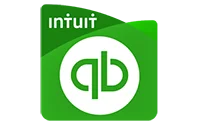The September 15, 2025 tax deadline marks the due date for the third installment of quarterly estimated tax payments. This payment covers income earned between June and August 2025 and is critical for freelancers, self-employed individuals, and small business owners who do not have taxes withheld automatically. Staying on top of this deadline helps you avoid costly penalties and keeps your financial planning on track.
Who Needs to Pay Estimated Taxes?
The IRS requires taxpayers to make quarterly estimated payments if they expect to owe at least $1,000 in taxes for the year, after subtracting withholdings and credits.
This typically applies to:
- Self-employed individuals and freelancers
- Partners in partnerships or S-Corporation shareholders
- Investors with capital gains, dividends, or interest income
- Rental property owners
If your tax situation isn’t fully covered by wage withholdings, you are responsible for sending these estimated payments to the IRS throughout the year.
When and How to Pay?
The IRS deadline for Q3 estimated taxes is September 15, 2025. You can choose the payment method that works best for you:
- IRS Direct Pay – fast, free, and secure.
- EFTPS (Electronic Federal Tax Payment System) – ideal for businesses or multiple payments.
- Credit or debit card – convenient but includes processing fees.
- Check or money order by mail – using Form 1040-ES.
No matter which method you choose, the key is to make your payment on time to avoid penalties and interest.
5 Tips to Make Your Estimated Tax Payment Smooth
- Use Form 1040-ES to accurately calculate your estimated annual tax liability.
- Double-check your recent income and deductions, especially if your cash flow changes from quarter to quarter.
- Keep payment confirmations as proof in case of IRS inquiries or audits.
- Leverage IRS online tools to make the process faster and minimize mistakes.
- Consult your CPA if your income is variable or complex—professional guidance ensures you pay the correct amount.
What Happens If You Don’t Pay?
Missing the September 15 deadline can be costly. The IRS may charge:
- Underpayment penalties, calculated based on how much you owe and how long it’s overdue.
- Daily interest on unpaid balances.
- Increased scrutiny if late or insufficient payments happen repeatedly.
Making timely quarterly estimated payments not only avoids penalties but also demonstrates strong financial responsibility and good compliance with tax laws.
The September 15 estimated tax deadline is more than just another IRS due date—it’s an opportunity to strengthen your financial planning. By staying proactive and keeping up with quarterly payments, you’ll avoid unnecessary costs, reduce tax-season stress, and keep your business or personal finances on solid ground.
Don’t let IRS deadlines catch you off guard—our team is ready to help you with your quarterly estimated tax payments. Contact us today!!!
Connect with us on LinkedIn for more updates and insights!!


